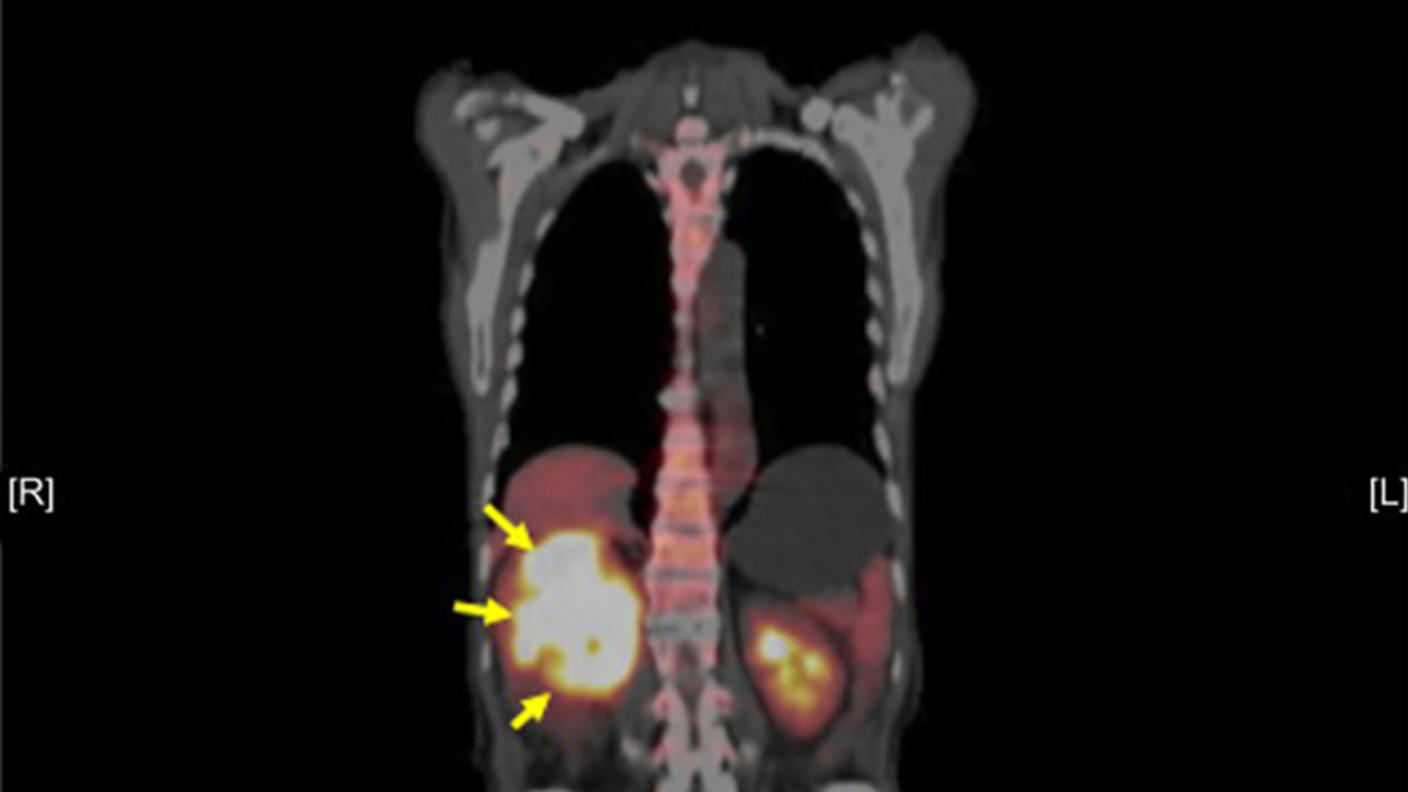Nivolumab Injections Could Make Treatment Easier for More People with Cancer
, by Nadia Jaber
For people with advanced kidney cancer, an injectable form of nivolumab (Opdivo) is a suitable alternative to the original intravenous form, early results from a clinical trial have shown. Experts say the injectable form makes the treatment quicker and easier for patients to receive.
As a result, “patients' treatment experience will be significantly improved,” said the trial’s leader, Saby George, M.D., of Roswell Park Comprehensive Cancer Center in Buffalo, NY.
The clinical trial involved nearly 500 people with advanced or metastatic kidney cancer. All participants were randomly assigned to receive a new form of nivolumab that is given as injection under the skin (subcutaneous) or the original form, which is given through a vein (an intravenous infusion, or IV).
The study found that the injectable form of nivolumab was similar to the intravenous form in its effects on kidney cancer and side effects. The injectable form also cut treatment time from 30 minutes to less than 5 minutes. Dr. George presented the study results at the American Society of Clinical Oncology Genitourinary Cancers Symposium on January 27.
“Subcutaneous immunotherapy is exciting on many fronts,” said Mark Ball, M.D., a kidney cancer expert in NCI’s Center for Cancer Research who was not involved in the trial. That includes cutting treatment times, making the treatment more convenient to receive, and opening the treatment up to more people, Dr. Ball added.
But, he cautioned, “I think it's important to temper our expectations. We don't know if this is going to end up being a game changer or not, but it definitely has potential,” he said.
Nivolumab injections: faster and easier to get
Nivolumab is an immune checkpoint inhibitor, a type of immunotherapy that helps immune cells attack cancer. It is used to treat more than 10 types of cancer.
“Currently, many first-line therapies for metastatic kidney cancer involve an intravenous infusion of a checkpoint inhibitor, which requires trips to an infusion center,” Dr. Ball explained. Infusions are typically given every 2 or 4 weeks for as long as 2 years, he added.
But many people don’t live near an infusion center and can’t afford to travel to one. That’s particularly an issue in rural areas and developing countries, Dr. Ball noted. And even for people who can get to an infusion center, there are often long delays to get an appointment.
If the injectable version of nivolumab ultimately gains approval from the Food and Drug Administration (FDA), it will make getting the treatment much easier for patients because nivolumab injections could be given at a doctor’s office closer to home, Dr. George said.
In addition to saving patients the time, expense, and stress of frequent travel to an infusion center, Dr. George said, injectable nivolumab “could also decompress infusion centers, which are constantly behind in terms of chair availability because of [high] demand.”
Nivolumab injections also take less time than infusions and don’t require a surgically implanted port, so they avoid the complications of getting and maintaining a port.
“I think there's also a little bit of a psychological benefit” for patients, Dr. Ball added. “When you're getting something [intravenously], there's kind of a gravity to that situation.” But with subcutaneous injections, patients may feel more empowered, he said.
Patients are “already battling fitting [cancer treatment] into normal life and balancing work and life,” Dr. Ball added. So having an injectable form of a drug that is used to treat many cancers has the potential to improve patients’ quality of life, he said.
Similar effects on kidney cancer
Nearly 500 patients with advanced or metastatic kidney cancer participated in the clinical trial, which was sponsored by Bristol Myers Squibb, the maker of nivolumab.
The injectable form was made by pairing nivolumab with a natural enzyme, called hyaluronidase, that improves the absorption of medicines injected under the skin.
The main goal of the trial was to see if injectable nivolumab was no worse than (was noninferior to) infused nivolumab in the way it behaved in patients’ bodies—what’s known as a drug’s pharmacokinetics.
By multiple measures, both forms of nivolumab had similar pharmacokinetics. For example, the average concentration of nivolumab in patients’ blood over the first 28 days of treatment was comparable between patients in the injection and infusion groups.
The trial also compared the effects of injected and infused nivolumab on kidney cancer growth. The percentage of patients whose cancer partially or completely shrank—the objective response rate—was 24% in the injection group and 18% in the infusion group.
In addition, participants in both groups lived for a similar length of time without their cancer getting worse: a median of 7 months for those in the injection group and 6 months for those in the infusion group.
These findings show that “the clinical efficacy [of injectable nivolumab] is at least as good as that of intravenous nivolumab,” Dr. George explained.
Injectable nivolumab also appeared to be as safe as intravenous nivolumab. Ten percent of patients in the subcutaneous group and 15% of those in the intravenous group experienced a high-grade, treatment-related side effect.
More patients who received subcutaneous nivolumab experienced redness, swelling, and pain at the injection site, Dr. George noted. But those reactions were all short-lived and resolved without any treatment, he said.
The only major difference between treatment groups, Dr. George noted, was the levels of antibodies against nivolumab in patients’ blood. Levels of these antidrug antibodies were higher in the subcutaneous group than the intravenous group (23% versus 7%).
The immune system can generate antibodies against medicines, especially those like nivolumab that are made from human or animal proteins. Although antidrug antibodies can interfere with the drug’s functions or change its concentration in the blood, the antibodies against subcutaneous nivolumab didn’t appear to affect its pharmacokinetics, efficacy, or safety, Dr. George noted.
More to learn about injectable nivolumab
There’s more to learn about injectable nivolumab, Dr. Ball said. For instance, it’s not yet known whether it is comparable to infused nivolumab in its effects on other types of cancer.
But, Dr. George said, the pharmacokinetics data are not specific to kidney cancer, so it’s possible that if FDA approves the use of subcutaneous nivolumab for kidney cancer, the approval could extend to other cancers.
“But it's for the FDA to decide,” he said.
The cost of the injectable form of nivolumab is another big question, specifically whether the time saved by subcutaneous delivery outweighs the potential cost, experts said.
And studies have shown that different parts of the immune system are activated depending on whether an immunotherapy is given under the skin or as an infusion, Dr. Ball explained. “I would be interested to see if there are differences in the types of immune cells and the immune profile within tumors” depending on how nivolumab is given, he said.
Injectable forms of other immune checkpoint inhibitors might also be developed in the near future, Dr. Ball added.
“Given the positive results of this study, I'd be very surprised if other [companies] didn't perform similar studies,” he said.


